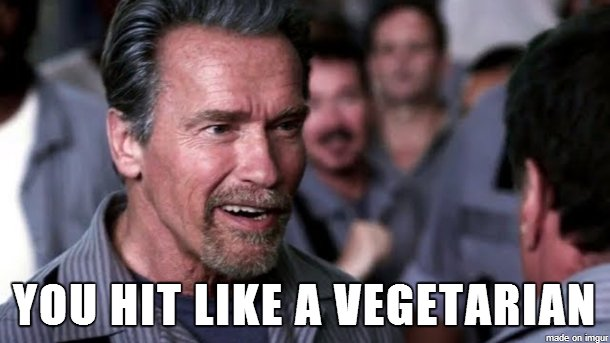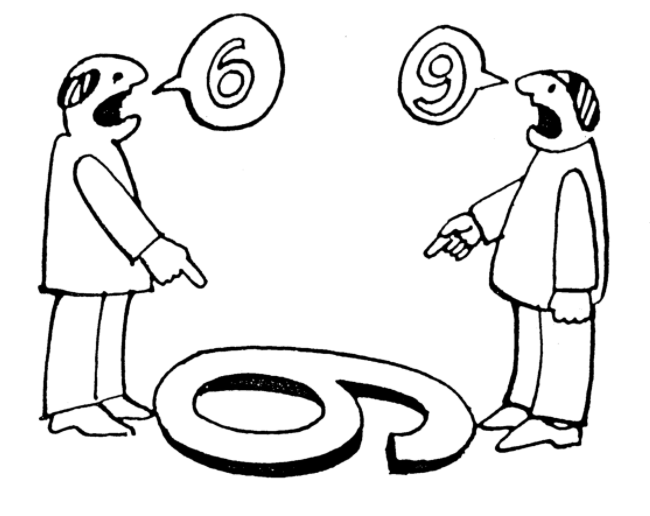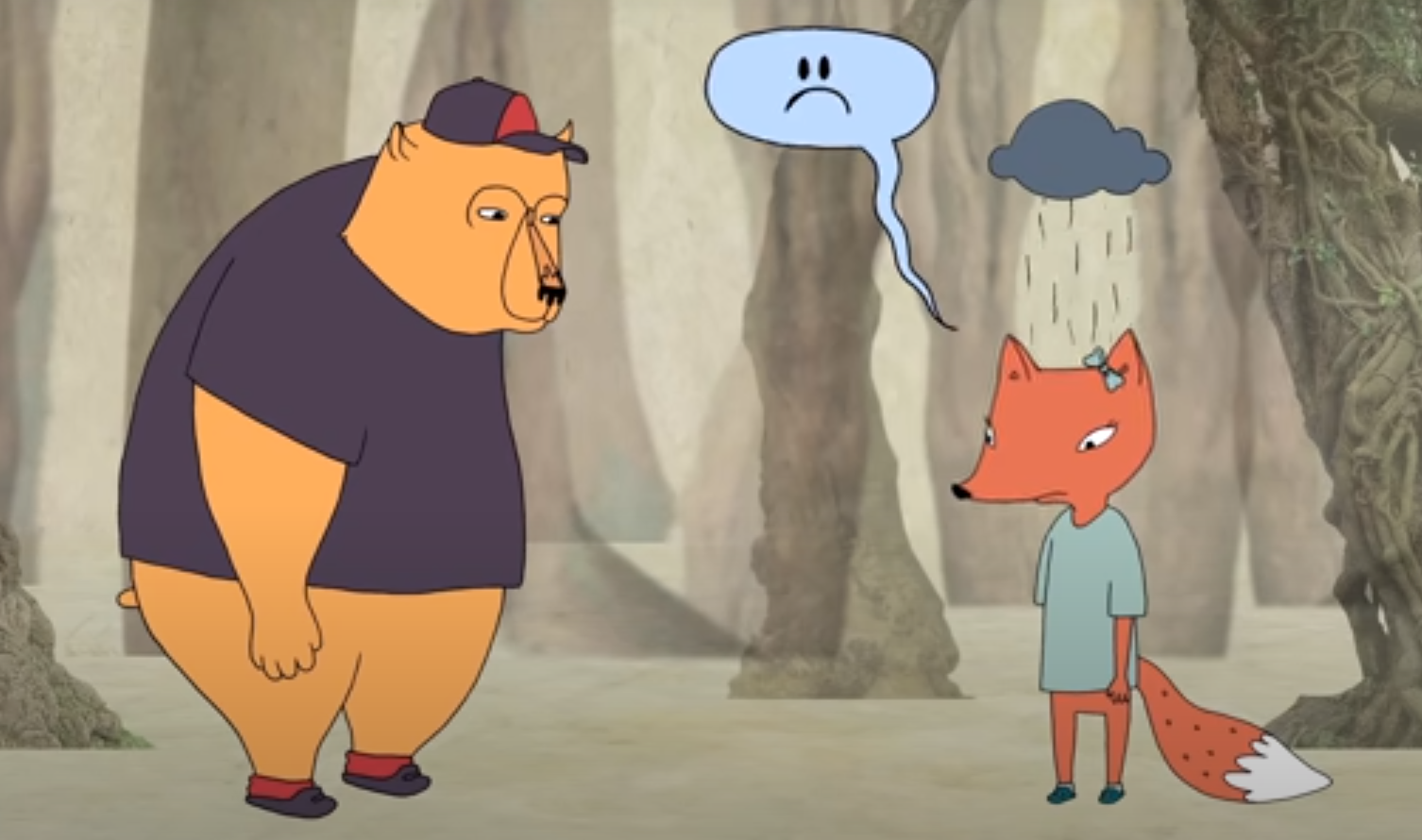Understanding the mind with Neuro-Linguistic Programming
A person holding a compass on its hand. It’s the best way I could describe Neuro-Linguistic Programming using an image. As you are about to discover, it can be represented as a tool for guiding those who use it. Image author: Bakr Magrabi
Introduction
If you search about it you will find a lot of ways to describe it and still don’t know clearly what Neuro-Linguistic Programming (NLP) is. I believe that they are mostly all correct because of the many ways please use it. It’s also famous for its faster fixes for phobias and long-held fears and anxieties.
I want to share here what I learned and found most useful to apply in my life. Most of the content comes from a book I read called NLP: The Essential Guide to Neuro-Linguistic Programming.
If you know nothing about this topic, but find it interesting so far, then stay with me. You will also learn personal stuff about me and my personality, so be ready. I called them Personal Experiences. I have limited the details and to just a few I don’t mind sharing here, because after all, it’s personal.
Disclaimer: I’m not a specialist on NLP, please don’t take any information here as a source of truth.
What is Neuro-Linguistic Programming (NLP)?
The NLP originally came in the 1970s from studying therapists to help them develop an understanding of how people create inner models of the world to represent their experience and their behavior. With more research through the years, the NLP started to evolve as a potentially powerful tool for self-development.
Talking more closely in fields of study, NLP is a psychotherapy focused more on immediate changes, which is the direct opposite of psychoanalysis, which may require years of therapy and self-study to see how one came to be who they are.
What I want to cover in the next section is from how I define this concept:
NLP is a set of tools to understand and rewrite how the mind works with beliefs and communication.
Beliefs
“There is no such thing as an inner enemy” - NLP: The Essential Guide to Neuro-Linguistic Programming

A person playing tennis with its shadow. Image author: @frak_kie
Understanding that we all live in and operate from a personal model of reality is the key to making our lives better serve us. No one is broken. Anyone can really let go of old beliefs and build new ones.
When living with our family, beliefs are simply learned and integrated. Evolved from our ancient tribal way of living. By sharing similar beliefs and views of the world, people feel not only a sense of order and control but also a sense of belonging.
These beliefs are related to our families at a survival level so that we are cared for and accepted. Later in life, we find ourselves attached to many ways of thinking, but very unconsciously.
Autopilot
“Your awesome brain automatically generalizes, deletes, and distorts information” - NLP: The Essential Guide to Neuro-Linguistic Programming
Autopilot is a state capable of processing something without conscience. One of the ways is by noticing similar experiences to make decisions faster without effort, so it takes less energy to process information. That can be a positive benefit, but can also contribute to limiting beliefs.
Let’s say that if I believe that “rich people are heartless”, I would want to change that. But if I’d had this limiting belief for a long time, I might also have evidence that it’s true, simply because that’s what I’d been looking for. A way to loosen up this is to identify counter-examples. Just examples that show how believing in this isn’t always accurate.
Personal experience
Like a lot of people, I too once looked at vegetarianism to be somewhat “unfitting”. But I came to identify that for me, all that time my way of thinking was coming from influences, food marketing, misconception, and a lot of other things. Once I realized that I was only believing without thinking, I started to question myself: “When did I choose to prefer meat? Why did I never consider changing my diet?”. I carried these questions for some months, it started to open my mind to look for answers. So in the end, I now believe and chose veganism for my diet.

Arnold Schwarzenegger saying “You hit like a vegetarian” to Sylvester Stallone on the movie Escape Plan. Filling “You do X like a Y” is an offensive show to everyone in Y: “You hit like a girl”. Fun fact for that, Arnold went vegetarian years later
Association and Dissociation
“The ability to recall an experience in a disassociated way allows you to observe it more impartially” - NLP: The Essential Guide to Neuro-Linguistic Programming
When reliving experiences, or imagining one that is not a memory, there are two possible states: Associated (watching from first-person view) and dissociated (watching from third-person view).
The associated state creates an image or experience, whether it’s real or not, which is more intense for us. This is awesome when remembering something you enjoyed in life, or just something you want to have, maybe succeeding in an interview. With sad stories, things you regret, or don’t want to happen in life, is not helpful. The emotional feeling can be as negative as much your thought can go, bringing demotivation, or perhaps frustration. So controlling not to think this way is a good approach, because the other state is better for them.
The disassociated state is being unconnected, watching yourself in it and still getting most of the information from the image, but not the emotional impact. So it is a good way to analyze a situation because your feelings are observed from outside.
The activities from this specific concept of NLP was one of the most positive for me. It was surprising to see it working, and requires mental effort though. I changed the view perspective of some unpleasant experience that didn’t even happen and helped me handle it better. At that moment when I first tried, I could truly understand my favorite quote from NLP: “There is no such thing as an inner enemy”.
Outcome
“If it’s possible for one person in the world to do something, it’s possible for anyone to do it; it’s only a question of how” - NLP: The Essential Guide to Neuro-Linguistic Programming
We frequently find ourselves pursuing all sorts of goals, only to realize upon getting them that they weren’t worth the sacrifice. Sometimes it’s ok, there are things we can’t know for sure once we get there, but it’s easy to mistake a desire that’s a social influence for one that is personal.
The NLP proposes a guide for that, which is called Well-formed Outcome. I prefer to share them in the way I understand it, instead of copy-pasting, with also some description in parentheses. Honestly, it’s not much different from other books and coaching, but I noticed 2 differences compared to what I already knew. The first is that is very focused on what you want instead of the actions, the second is to also look for undesired outcome that can happen:
Guide for the Well-formed Outcome:
- What does the outcome mean to yourself, based on senses? (how will you feel? What do you want to see? How would you describe the experience of fulfilling the desire?)
- What are the meta-outcomes? (achieving that, what will also happen? Getting a university degree may also make new friends along the way and get an internship job)
- How do you know you are getting close to that? (How do you describe yourself on the path?)
- When you want, and when can you reach the goal? (find a realistic time that you can and want to have the outcome. Yes, anyone can say “I want now!”, but that is not realistic, you know you need time to work on it)
- How pursuing this can have an undesired outcome? (even if it is not clear, really think about it. Maybe wanting to travel more means to move away from family and friends, maybe buying a new car means a lot less money for other things and also in the future as a long-term impact. This is not about sacrifices, is about predicting possible negative effects, so that you accept that they can happen)
- What is preventing me from getting this result? (find out obstacles)
- What resources do I already have that can help me? (lookout for the things you have and people that will help you on this journey)
- What new resources do I need? (similar to the previous)
- How can I reach the goal? (now finally the actions, based on everything before)
There is also an important note for the actions step: having options about how to accomplish a goal is essential. Because NLP operates on the premise that more choice is better. So a plan whose success depends on one way of doing something can lead to disappointment. Outcomes in NLP is a roadmap with alternate routes and that needs updates sometime.
Personal experience
I wasn’t a good planner for goals in my life, and the worst part is that I thought I was. There was a time that I was super ambitious, very career-focused, but unconsciously sacrificing my health, physical appearance, and relationships. When I was turning 25 years old, I had basically 2 jobs, financially well established, and yet unsatisfied. I couldn’t understand why at first, it took me some months to identify that I was never inspired for the things I wanted, they were goals built under family influence. I started to lose interest in what I achieved and discovered how I came to have sabotage methods and beliefs to keep the momentum on my ambition.
So I made some changes to find more balance, which I now believe is the key to my satisfaction. Also became more open-minded, authentic, and willing to experiment different things to find what I enjoy. Though I still think I’m quite ambitious, I also focus on the things I really want and stopped ignoring my desires.
Communication
“Our judgments about another person, which are really more like first impressions, are really nothing more than a reflection of our own internal filters” - NLP: The Essential Guide to Neuro-Linguistic Programming
Most communication skills were formed when we were young. Like when a child asks the parent for ice cream, by either being polite, crying, or yelling, it’s learning how to communicate. When that person is now an adult, deep down it still has a behavior that is adopted to get what the person wants, so it might have a communication more assertive, passive, or aggressive.
Just like with beliefs, communication has evolved from a primal level. Now with constant conversations and texting without vision sense, communication doesn’t flow the way people would like to.
Behavior
“Behind every behavior is a positive intention.” - NLP: The Essential Guide to Neuro-Linguistic Programming
Even when avoiding to communicate with people has good reasons, or when replying aggressively, because when having such a reaction is that part of the mind thinks that confronting or not confronting them is what’s essential to survive.
While some behaviors may not be what most people would condone, it’s important to understand that in that individual’s worldview, in their own mind, that behavior is absolutely correct or necessary.
Whatever the stimulus is that’s coming in, you assign a meaning to it, you have an emotion, and it’s those emotions that generate the reaction.
Everyone operates inside their self-created minds. It’s how we interpret our situation with our mind that causes our brain to revert to our flight-or-fight instinct.
Curiosity
“People function better when they’re engaged and curious” - NLP: The Essential Guide to Neuro-Linguistic Programming
Once you’re curiously exploring the answer to something, it’s amazing how a lot of negative stuff just disappears. Imagine the following situations:
1. Two people disagree on a topic, they argue against each other, doesn’t focus on things that they agree with, arms crossed, and respond with sarcasm
2. Two people disagree on a topic, they share their point of view, they show interest to know what the other thinks, makes eye contact, and respond with curiosity
If these situations don’t look so different, then imagine that the topic is politics. Now things can get ruthless really easy. And if they are friends, maybe one is gonna win, but the other will end up feeling humiliated.
People won’t change their opinion if they don’t want to. Unless someone is trying to make enemies, the first option isn’t a good approach for dialogue. But when you listen attentively to what the other person has to say, let them know you truly respect their values, understand that people lived different experiences, and you shared that you see things from a different way, then the conversation is more enjoyable for both sides.

Two people in the opposite direction looking at a number on the floor, one says 6, the other says 9. A situation displaying that just because one is right does not mean the other is wrong, it just hasn’t seen from the other’s side
Rapport
“When you make people feel better by genuinely getting in harmony with them and attending to their feelings, they feel more comfortable with you” - NLP: The Essential Guide to Neuro-Linguistic Programming
Since many basic skills learned when people are young aren’t that useful later in life, there are other ways to navigate conversations and get better results. Curiosity is the way to go and can be used in infinite ways. Talking in more specifics way, here are dos and don’ts related to NLP that I like:
1. Avoid interruption, keep the flow going, it will display self-assurance and attention to the other person
2. Avoid contradict, but if you want to, try this: “I understand that, and I wonder if X would also be possible”, so you feel less compelled to reject opinions
3. Avoid duels, if you end up proving someone is wrong, you’ve humiliated or made an enemy, and if the person proves you wrong, they will think you are a fool (of course, at different levels, depending on the subject)
4. Avoid replies with but and why: Someone may say “That’s nice, but you can improve”, the word but means everything before was a lie, negating even with good intentions that something was nice. If changed to “That’s nice, and I think you can improve”, it works better. When someone says why, it motivates the other to find reasons, and it can attack safety: “Why did you do that?”, “Why do you think that?”, “Why?”, even with good intentions to just understand someone. Why promotes challenge, not rapport. Some alternatives to soft that: “I wonder why that’s so”, “How come so?”, “Tell me more”
5. And last but not least: use the word feel. Here is a good scenario: “If I were you at that moment, that would make me feel frustrated”. The word feel helps the person feel felt. It shows that you truly comprehend the situation if said sincerely
These are not rules, consider them as a survival kit to achieve rapport. It takes a mastermind in communication to handle disagreements, feedback, and tough situations, in whatever way you want without making the person feel bad, upset, sad, or any feeling you didn’t intend to. Also, I would say it’s utopic to always expect excellent communication from others, so being prepared for the opposite I mentioned will take communication development to the next level.
Empathy
“Having all the answers may earn someone a gold star in grade school, but in adult conversation, it’s not appreciated” - NLP: The Essential Guide to Neuro-Linguistic Programming
Years being congratulated to solve problems now may lead people to be eager to provide solutions instead of comfort, as soon as they listen for other’s problems. And when they can’t find a solution, it comes the worst, they reduce other’s problems.
Here is an analogy that once helped me understand that:
Someone comes with a glass of wine, the person says to another: “My glass has wine, I don’t like wine, I wanted something else”. Then the reply: “Have you tried changing to water or something you like?. Oh, don’t mind that, is just some wine. I don’t like it too, but I don’t really care, you shouldn’t feel bad either. Everything will be fine.”. This analogy can be recognized in many contexts:
Problem: “I’m getting fat, I’m sad that my clothes don’t fit anymore”
Replies: “Try to lose weight. I know a good nutritionist, let me give you the contact. There is also a gym nearby, I think you will like it”
Again, is not about good intentions, is about how each of us interprets the speaker.
So what to do then? When someone approaches with a glass of wine, what they want is that the other just acknowledges that the glass has wine, it doesn’t matter how much it has, because each person has a different perspective of the amount of wine.
A better reply has empathy, which depends on the context and on your own experience about the subject. Yes, it’s much more difficult. If you think hard and yet have no idea what to say, that is exactly what you reply, even without having the same feeling: “I don’t know what to say now, but I’m glad you told me”.
If the first person didn’t specifically ask for advice, they aren’t looking for answers, they probably might even already know them. Is just difficult to handle it.
Here is an excellent video that explains what it means empathy and how it differs from sympathy:
https://www.youtube.com/watch?v=1Evwgu369Jw

What I think of the book
In a few words, the NLP: The Essential Guide to Neuro-Linguistic Programming talks about outsmarting your own mind. And let me give you a spoiler: it’s very challenging to do that. I never thought a book could do that for the reader. My expectations were different, though I liked to be challenged and it was a good experience to read it.
About the communication, I think it was self-explanatory. I want to point out an exception that the book mentions, where all that communication tools are not enough or might don’t even apply, which it’s dealing with toxic people. Though it is very interesting, I don’t intend to cover it here.
The main goals of the book are to guide the reader in what it wants from life and learn about other people’s inner workings. It also provides a lot of exercises described as Discovery Activities, which a lot of books lack, so they leave up to the reader to apply wherever it decides to (and may never try to).
I didn’t absorb everything from the book, in fact, I rejected a lot of things that were not useful or didn’t work for me. The NPL powered a lot of concepts that I was aware of and my own personality. I didn’t notice many changes to be honest, probably because most of the concepts I was somewhat aware of, but I noticed one interesting change that impacted me: The NLP helped me find peace in my thoughts.
I like to think of it as an analogy where I see the knowledge about how the mind works and handling communication is like puzzles. The NLP gave me pieces that helped to complete my puzzles, and I couldn’t fit some pieces, so there will always be a journey to find more pieces to my puzzles.
Alternatives and comparisons
There are other books that I read and discuss the same concepts of NLP in a similar way:
- Outwitting the Devil: more intended for the reader to question his beliefs, quite challenging to read. It’s also my favorite book
- How to Win Friends and Influence People: a classic for improving communication
- Crucial Conversations: Tools for Talking When Stakes Are High: an even deeper topic of communication, it mentions a lot about curiosity
- The Power of Habit: a classic for understanding habits. NPL offers a different approach, which proposes changes on habits and behavior more like through “The Power of Thought”
If I would recommend NLP: The Essential Guide to Neuro-Linguistic Programming to someone, I would say these other books cover the topics much better. Yes, it’s 4 books over 1, though the NLP also does an excellent job covering the concepts.
Conclusion
“When you truly know what you want and that what you want is worth having, you’ll find all your internal resources aligning” - NLP: The Essential Guide to Neuro-Linguistic Programming
That quote reminds me of this one:
“When you want something, all the universe conspires in helping you to achieve it.” - The Alchemist, from Paulo Coelho
So I concluded that NLP is interesting enough for anyone who identifies with those quotes. It can be as powerful as the reader wants to believe it is, a tool that is only sharp if the wielder knows how to handle it.
I think that’s it. I put some good effort into this post and you too by reading it. If you made it this far without skipping, you have my sincere congratulations. And if you enjoyed it, please let me know. Thank you!